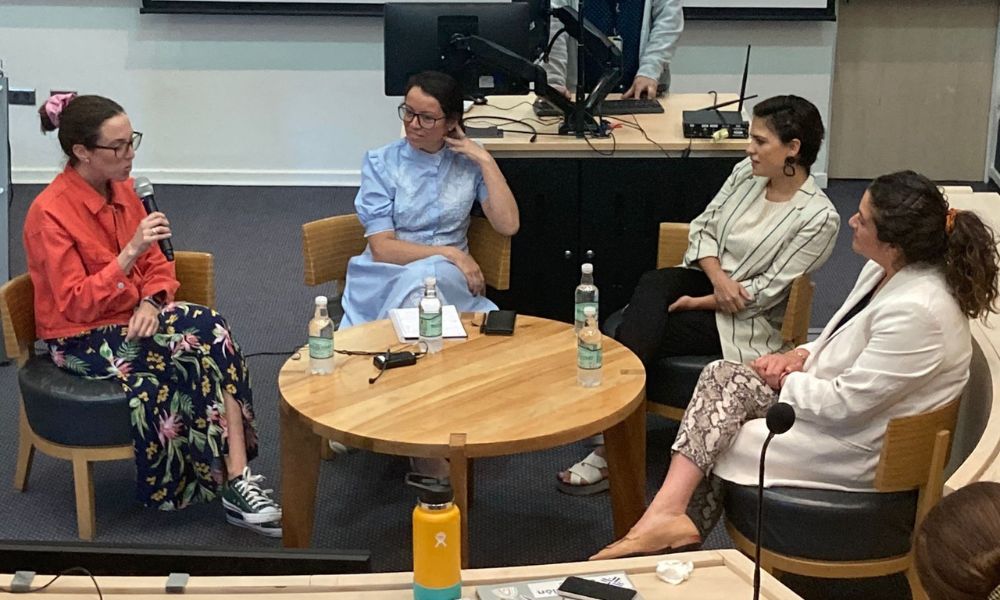What aspects should be measured when evaluating a social program, and what precautions should be considered to do so appropriately? These are some of the questions addressed in the fourth and final session of the Philanthropy Trends 2023 Cycle, organized by the Center for Philanthropy and Social Investments (CEFIS) of the School of Government at Universidad Adolfo Ibáñez (UAI).
The panel was led by the director of CEFIS, Emilia González, who began the conversation by outlining some of the challenges that social program evaluation must address today. This includes ethical considerations, care, and responsibility with which these processes must be conducted to avoid harming the people participating in the programs.
“Many times, when evaluating a social program, we want to know and understand everything. Sometimes, that means delving into the daily lives of people, so it is crucial to have a series of precautions and rules to carry out this process,” noted the director. “We must ask ourselves how we ensure that all stakeholders involved in the evaluation see their interests and risks represented in the process and decision-making.”
The guest speakers invited to address this topic on the panel were Verónica Sánchez, co-founder and director of First Impact; María Luisa Correa, coordinator of the studies area at the San Carlos de Maipo Foundation; and Macarena Cea, Director of Evaluation and Development at Fundación Luksic.
During her presentation, Macarena Cea explained the evaluation model applied by the Foundation to assess its programs in their different stages: Problem formulation; Program design or redesign; Implementation evaluation; Results evaluation, and Impact evaluation.
“From the Evaluation and Development area, we incorporate a methodological approach to the development of our programs, where there is a theory of change and therefore an expected impact. The programs we implement are evidence-based, and the evaluation model is aimed at the continuous improvement of our programs,” explained the director.
Some of the topics addressed during the panel were focused, among other things, on the importance of considering evaluation as a means to make decisions for the beneficiaries, not as an end in itself. Also, the importance of relying on existing evidence when making decisions and not overusing resources unnecessarily; finally, not losing sight of the “why,” understanding that not all initiatives will necessarily require an impact evaluation when there is ample evidence to support them.

